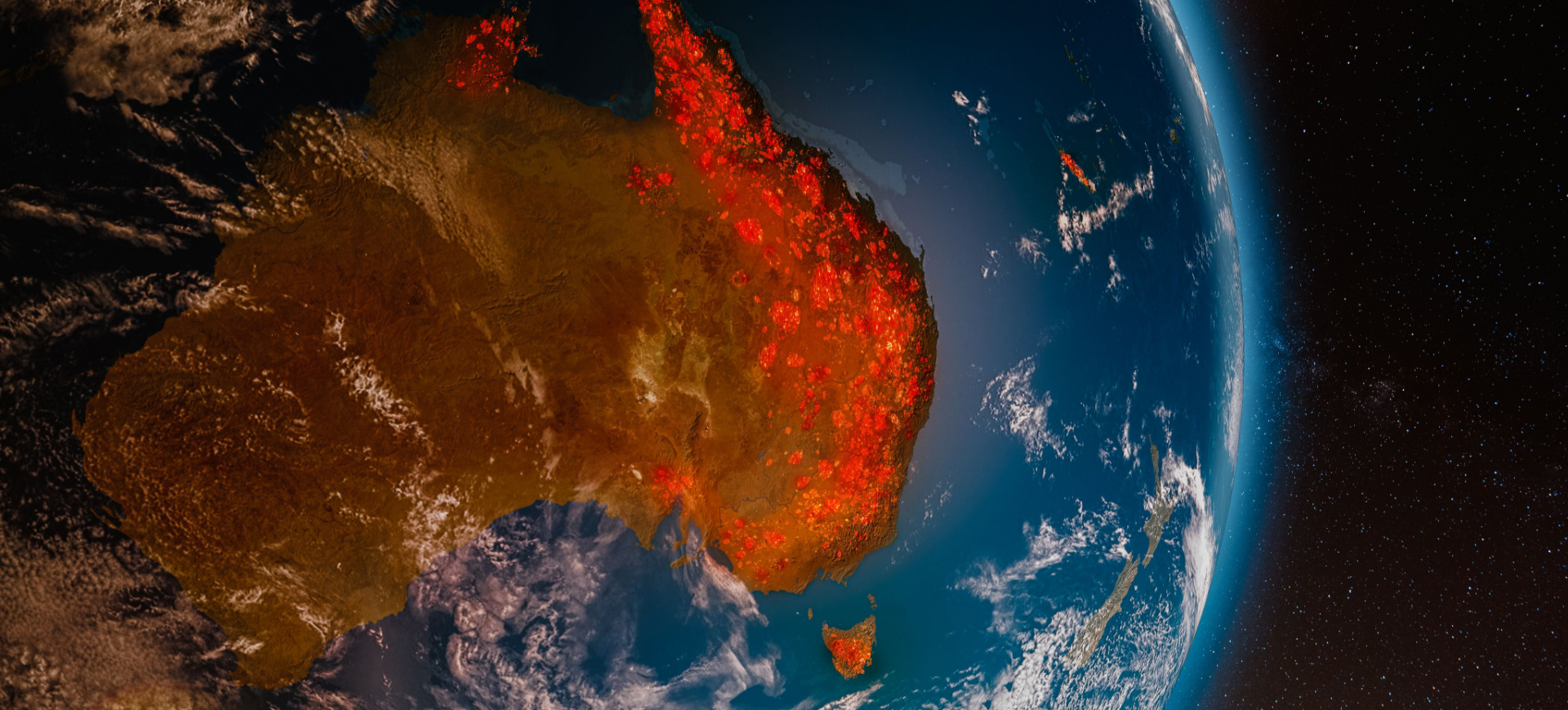Real, urgent and present
The health impacts of climate heating have been documented in Australia for at least 20 years, but engagement from those who can drive change has been glacial – until now
Four floods in four months. Choking bushfire smoke infiltrates hospital operating rooms and fills new babies’ lungs. A pandemic brings the global community to a standstill.
These are some of the real, urgent and present impacts that Australians face from climate change.
The evidence of adverse health impacts from global warming has been documented in Australia by scientists for at least two decades. Despite this, engagement by policymakers and political actors has been glacially slow – until the past three months.
Climate politics in Australia have changed drastically – and we hope irreversibly. It is worth reflecting on the political forces that stagnated progress for decades, lest they rear their head again.
A toxic political environment, with conservative political parties captured by corporate interests and disinformation vigorously promoted by Murdoch-owned media outlets, has led to the grindingly slow development of climate policy in Australia.
Unwilling to engage
Politicians in Australia’s national parliament have been famously unwilling to engage with climate science. As recently as 2018, Deputy Prime Minister Michael McCormack dismissed the Intergovernmental Panel on Climate Change as “some sort of report” to which Australian policymakers were not obliged to pay attention. His colleague Environment Minister Melissa Price asserted scientists were “drawing a long bow” in calling for a fossil fuel phase out to limit global warming. Prime Minister Scott Morrison and then Angus Taylor, minister for emissions reductions (in name only), repeatedly claimed Australia was “meeting and beating” its commitments under the Paris Agreement. This was untrue: emissions rose under this conservative government.
At the Climate and Health Alliance, we have seen first hand how political attitudes can influence the public service. In 2010, the Australian Tax Office told our charity that “climate change is a highly contentious issue among lawmakers and the community, with both believers and skeptics putting forward their evidence to support their contentions”. The office contended the health impacts of climate change were “not yet established”, and were “speculatory [sic], depending on which view one supports”.
This was despite the World Health Organization and The Lancet declaring climate change the biggest public health challenge of the 21st century.
Decades of inaction in Australia have had repercussions around the world. Australian inaction provided cover for other recalcitrant governments, and has allowed climate denial to be normalised for other conservative governments. It has stymied bureaucracy, confused the public and contributed to an outbreak of climate anxiety, particularly among young people.
Lives have been lost unnecessarily. Between 2006 and 2017, around 36,000 premature deaths in Australia were caused by extreme heat. At the same time that emergency services were seeing more incidents linked to dangerous extreme weather, their funding was cut.
No wonder, then, that advocates for evidence-based policy are relieved at the results of the recent federal election. The newly elected centre-left government, led by Prime Minister Anthony Albanese, has wasted no time. In just a few months, his government has:
▸ updated Australia’s commitment under the Paris Agreement;
▸ drafted, introduced and secured support from the House of Representatives for a climate bill, articulating the new targets and reporting; and
▸ reaffirmed its commitment to develop a national strategy on climate, health and well-being for Australia.
Health is a political choice. By ignoring the science, and refusing to engage in either mitigation or adaptation policy to address the health impacts of climate change, Australia’s former government put lives at risk. They blithely dismissed repeated warnings of the dangers by advocates and researchers. For those who lost their lives in climate-related disasters, one could argue their deaths were the results of calculated, self-serving, political choices.
Prioritising science
There are always choices. Choices to listen to science, to listen to the community or to listen to those with vested interests in the status quo. By developing policy targeting climate change and health, the Albanese government is making a choice to prioritise scientific evidence over ideology.
The health and medical community has actively advocated for an integrated response to climate and health policy in Australia. This has included the development of very detailed guidance in the form of a framework for the national strategy, “Healthy, Regenerative and Just”. The framework has more than 200 specific policy recommendations under eight action areas that span multiple portfolios and all levels of government.
A political choice has been made by the Australian government to heed this advice.
In August 2022, Minister for Health Mark Butler reconfirmed the government’s commitment to develop and implement a national strategy on climate, health and well-being, saying: “The World Health Organisation estimates that between 2030 and 2050, 250,000 people every year will lose their lives as a direct result of a warming planet. And the impact in Australia will be profound. In a continent that already pushes us right up against the limits of human tolerance.”
The minister has identified three key objectives for Australia’s climate and health policy:
▸ maximising the synergies between good climate policy and public health policy,
▸ ensuring the healthcare sector is prepared to respond to the challenges of climate change, and
▸ reducing the sector’s contribution to global warming by reducing emissions in health care.
Peter Doherty, Australian Nobel Laureate for Medicine, said, “The window of opportunity for effective action on climate change is narrowing. We have just one decade to apply all the strategies available to us to give us a chance to hand on a habitable planet.”
We hope the leadership of the new federal government will provide us all a chance to contribute towards that goal.












